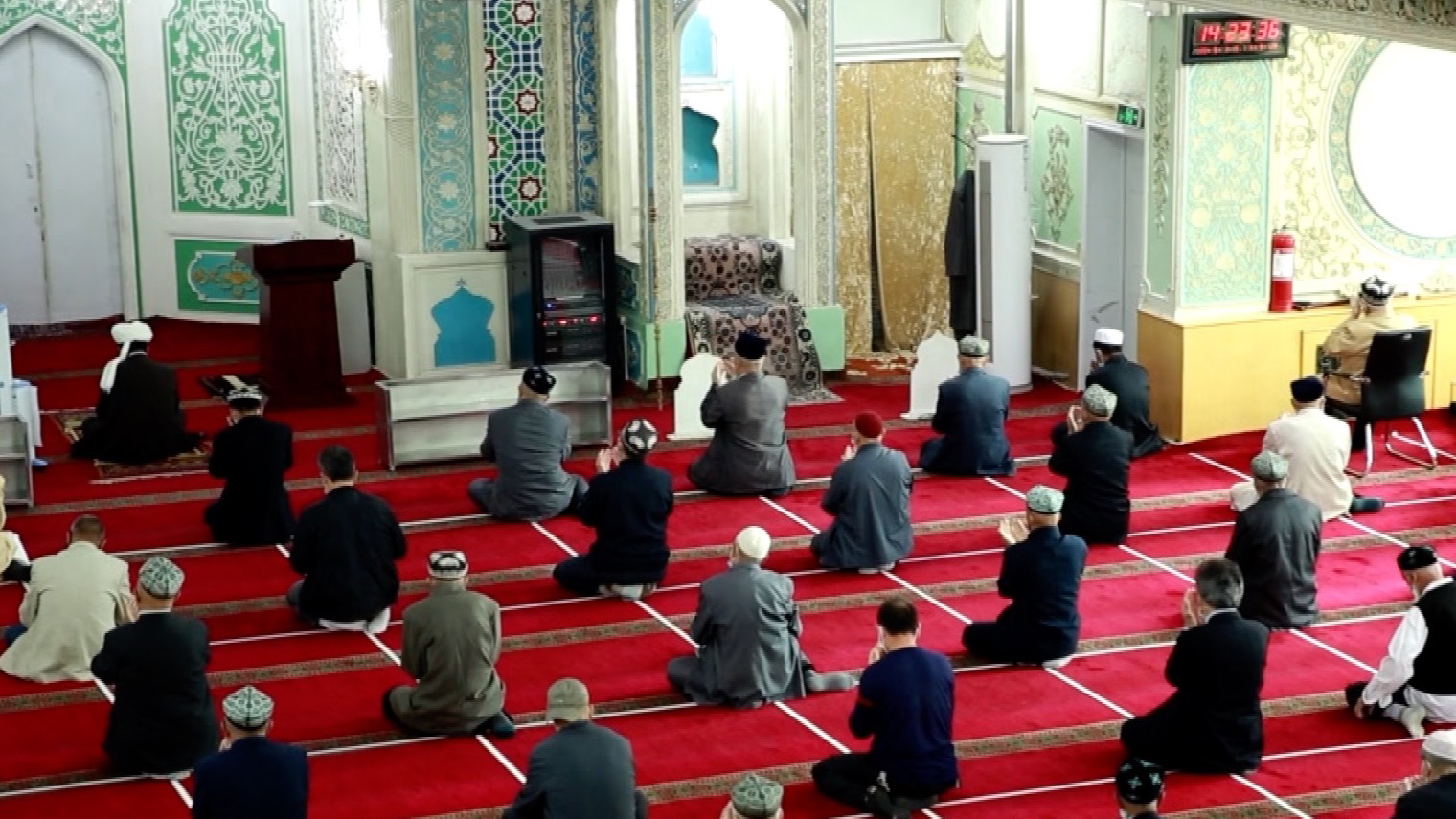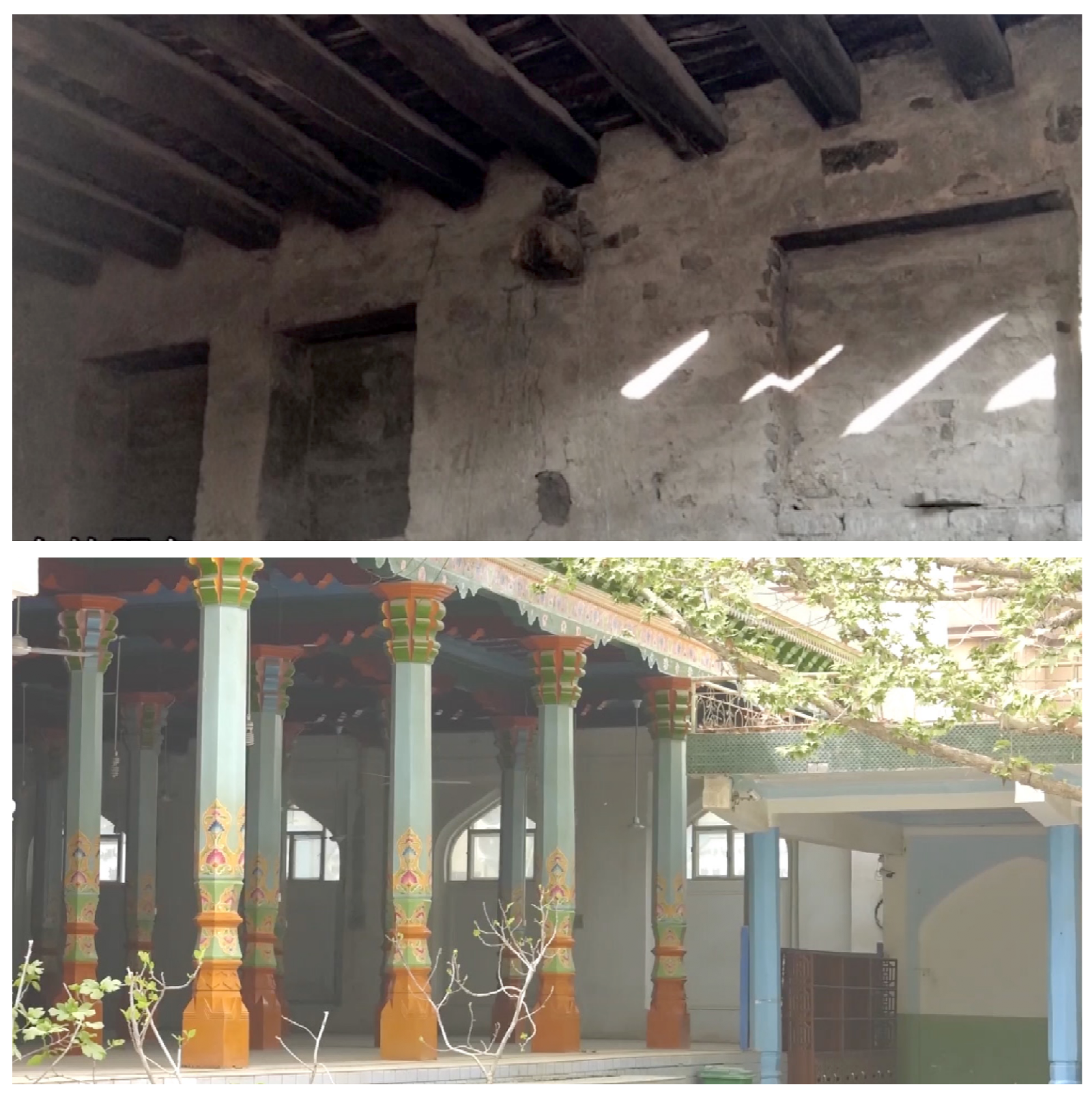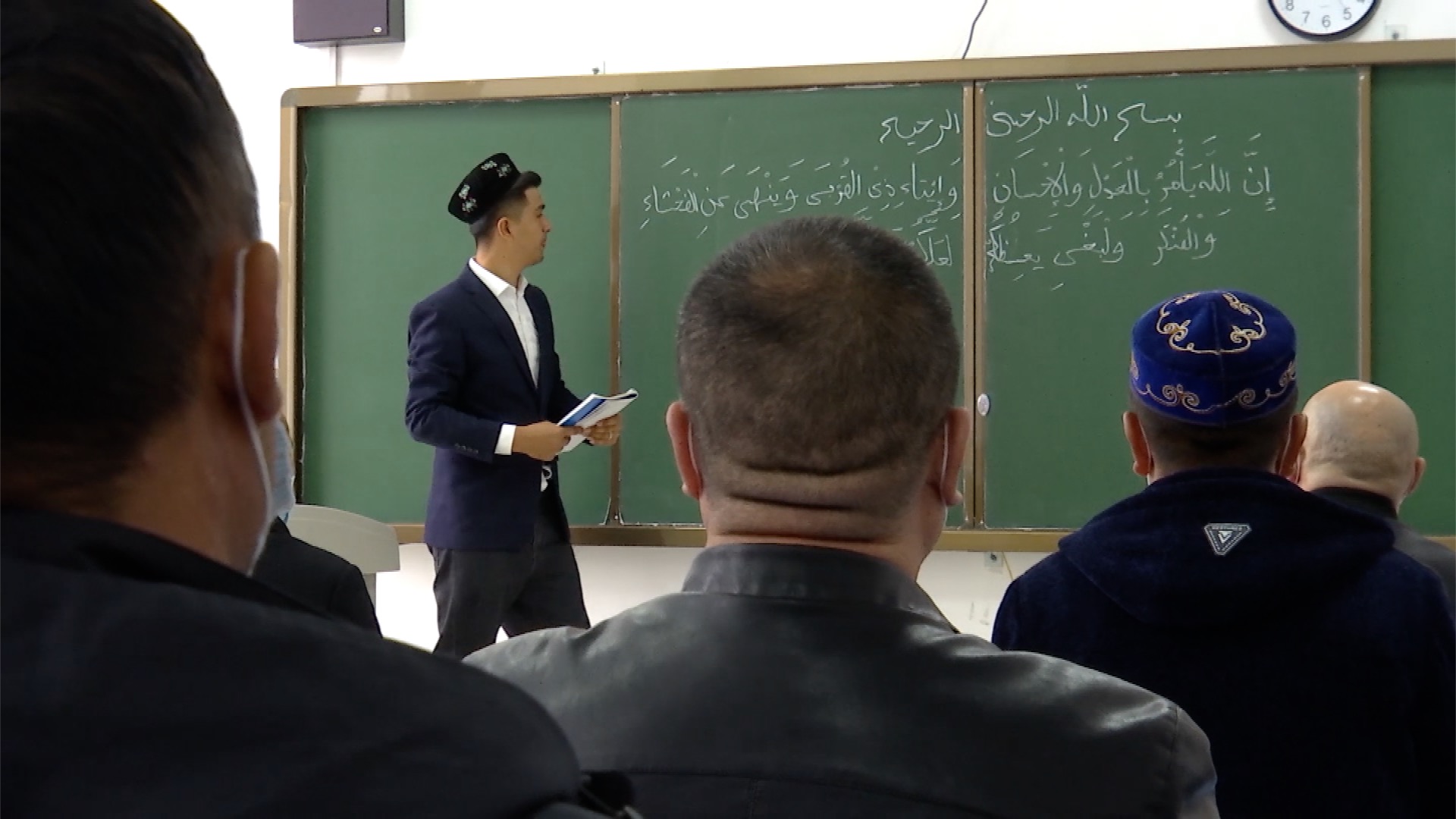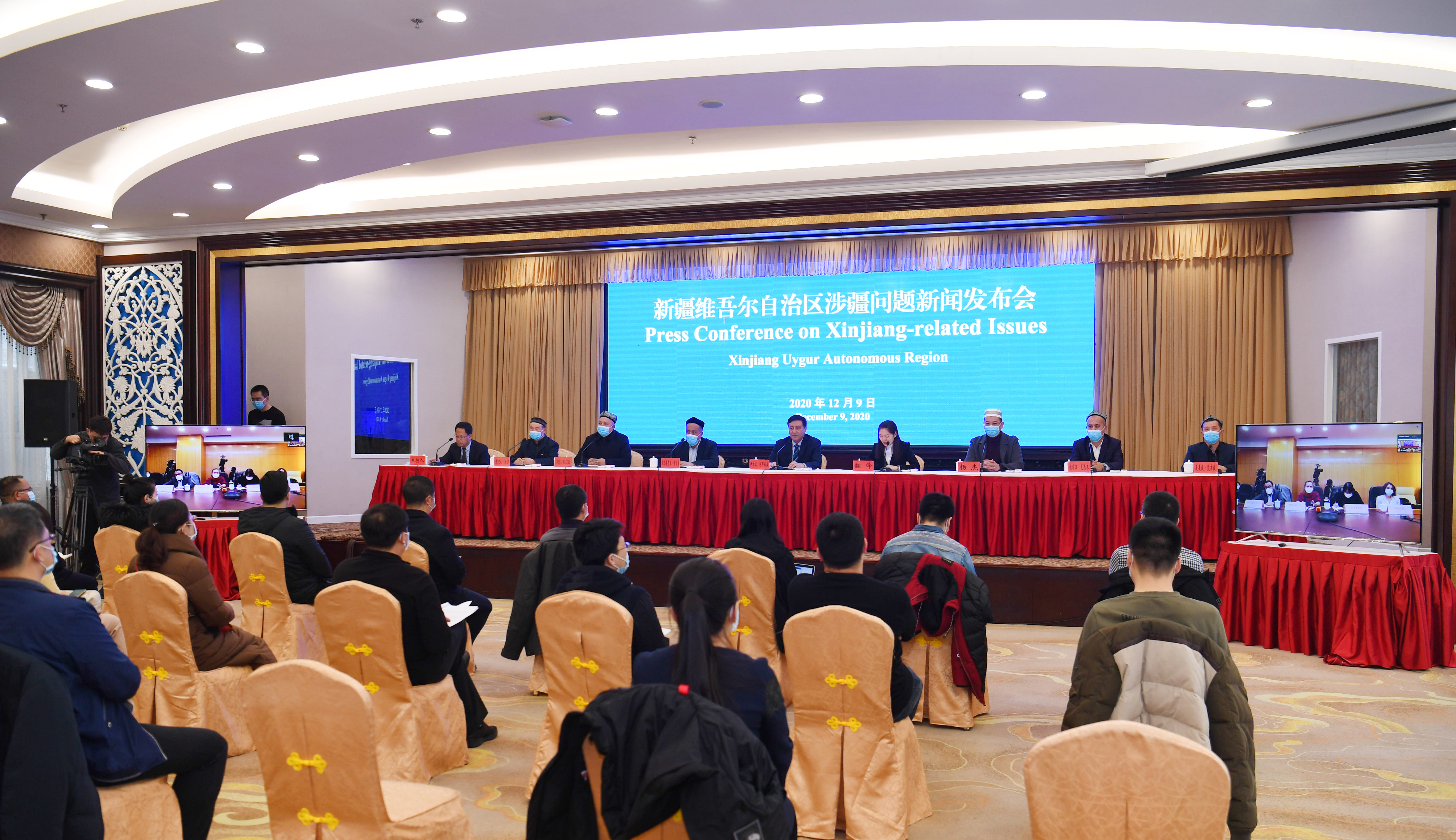02:33

Muslims in northwest China's Xinjiang Uygur Autonomous Region refuted claims by overseas media reports that China restricts their religious freedom. They clarified that China's ongoing counter-terrorism measures have never targeted regular religious activities. Instead, they are practicing their belief under better conditions.
Iminjan Keram, imam at Tuanjie Mosque in Korla, said, by fighting against extremism in Xinjiang, the government is actually protecting regular religious activities.
"We all think religious extremism, under the banner of Islam, is totally against the religious doctrines — It is not the real Islam. It is actually an anti-human, anti-social, anti-civilization and anti-religious malignant tumor, which runs counter to the creeds which concern patriotism, peace, solidarity, moderation, tolerance and benevolence advocated by Islam and many other religions," said Keram during a press conference held by the local government on Wednesday.

File photo: Jama Mosque in Yecheng county before and after renovation /Xinjiang Uygur Autonomous Region government
File photo: Jama Mosque in Yecheng county before and after renovation /Xinjiang Uygur Autonomous Region government
Renovation of the mosques
Worshippers in Xinjiang also mentioned that several mosques in the region have been repaired or rebuilt in the past few years. But some Western media outlets have reported they were demolished instead. Cases vary from Id Kah Mosque in Yutian county to Jama Mosque in Yecheng County, which both have hundreds of years of history.
The claims were proved false, as local muslims in Yutian pointed out that the Id Kah Mosque has been designated as a national cultural heritage, and is under good preservation with a large sum of government funds. While Jama Mosque had been reinforced to offer better service and safety with no damage or demolition to the historic site, said the hatif of the mosque.
Obulhasan Tursunniyaz, hatif at Jamah Mosque in Hotan, said many local Muslims appealed for old and dilapidated mosques to be repaired and renovated.
"Our voices were heard, and our suggestion got attention from local authorities," he said. "Now the Mosque has bright and spacious hall, which is clean, tidy and pleasing. It is equipped with air conditioners in summer, heaters and hot water in winter."
Government statistics suggested that Xinjiang has some 24,000 mosques, that's about one for every 530 Muslims, a higher ratio than in some Muslim-majority countries. Each mosque is said to have a democratic management committee, consisting of representatives of religious personnel and believers to participate in self-management of the mosque and religious activities.

A teacher instructs students to chant the Quran properly at the Ili Branch of Xinjiang Islamic Institute. /Xinjiang Uygur Autonomous Region government
A teacher instructs students to chant the Quran properly at the Ili Branch of Xinjiang Islamic Institute. /Xinjiang Uygur Autonomous Region government
Religious education
Apart from a mosque, Muslim students in Xinjiang now also have more access to knowledge of Islam from 103 Islamic associations and 10 Islamic institutions in the region.
"This is the place we pray, as well as another classroom for us to learn standard religious etiquette," said Daoletkhan Dalilhan, a student at the Ili Branch of Xinjiang Islamic Institute.
Other students at the institute, many of whom are also imams at mosques, reported to have improved their ability of chanting the Quran and developed a more thorough understanding of Islamic doctrines to better service the broad masses.
"Beside these, many Muslims could study on the China Islamic Association website or through apps like Wechat, Weibo and Douyin on smart phones," added Tursunbay Meyimhan, a student at the institute.

The government of the Xinjiang Uygur Autonomous Region holds a press conference in Xinjiang, December 9, 2020. /Xinjiang Uygur Autonomous Region government
The government of the Xinjiang Uygur Autonomous Region holds a press conference in Xinjiang, December 9, 2020. /Xinjiang Uygur Autonomous Region government
Although Xinjiang faced multiple COVID-19 outbreaks this year, locals said their normal religious practices were not affected, as the infections were soon put under control. They added that there are sufficient supplies of halal foods, with the prices still reasonable. Muslims were also able to celebrate Ramadan – a holy month of prayer and fasting – just as in years past, this time with tea, naan, and fruits provided to break the fast as well as extra medical support.
Other officials at the news briefing emphasized that China's Constitution protects citizens to enjoy freedom of religious beliefs and normal religious activities from any state organ, public organization or discrimination.
"Xinjiang's policy in respecting and protecting freedom of religious belief has won positive comments across the international community, Muslim countries included. The Council of Foreign Ministers of the Organization of Islamic Cooperation (OIC) adopted a resolution commending Xinjiang's efforts in providing care to its Muslim citizens in March 2019. Over a period of time, OIC was invited twice to send delegations to visit Xinjiang. The delegations highly praised the efforts of Xinjiang in attaching great importance to the protection of Muslims' rights and interests as well as in anti-terrorism and de-radicalization," said Ilijan Anayt, a regional government spokesman.

